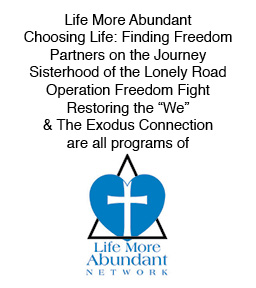If you think about it you can probably come up with a handful of things that you could DO that have the power to destroy life as you know it. Your list may include such “biggies” as grand larceny; killing someone, or having an affair. Fortunately for all of us, the vast majority of people don’t even consider doing those things.
However, in our 13 years of working with sex addicts in recovery, we have consistently noted that there is one simple little thing that has the potential to trip them up even years after they have successfully completed counseling. Interestingly enough, it isn’t something they DO. It’s actually something they DON’T do.
We’ve seen it happen so often, that we can we can practically write the script. It doesn’t affect everyone . . . but it happens frequently enough that it deserves consideration—and a plan to assure it doesn’t happen to YOU!
What keeps bringing these dedicated recoverers down? It’s nothing big, just a series of little, seemingly inconsequential, oversights. It’s that subtle decline by degrees. Slowly, slowly they stop doing what they know they need to do to stay healthy.
Four signs you’re starting to slide
1. You’ve started periodically missing church and meetings with your support team. Even if your excuses are valid, this puts you in a highly vulnerable state. Start keeping track of your misses on the calendar, you may find that you’re missing more than you realize.
2. You’re not paying attention to your physical and emotional needs. Are you too busy for regular meals, or eating way too many empty calories? Are you going to bed later and getting up earlier that you normally would? Are you more on edge than usual? Are anger or stress starting to build up?
3. You’re starting to hold a few secrets—from your wife, your co-workers, or your friends and family. Maybe you have good reasons for your silence. You don’t want to burden them when they had so much other stuff going on their lives. You’re afraid of being judged or rejected. Or maybe you’ve just plain convinced yourself that nobody needs to know—you can just deal with it by yourself. Why get others involved?
4. You feel resentment, entitlement, or increasing anxiety starting to build. These are deadly indicators that issues are not being resolved and needs are not being met.
Left unchecked, every one of these four holds the potential for catastrophic consequences. None of us can afford to get lackadaisical. Although there is no need to run around in a high state of anxiety about it, we need to train ourselves to quietly give priority attention to the things that will keep us healthy.
The answer is simple.
If you get in the habit of honestly asking yourself these four simple questions each day and making whatever changes you need to be able to say “yes” to them, the chance of little oversights building into life-damaging situations can be eliminated.
- Am I being open and transparent in every area of my life?
- Am I paying attention to my physical and emotional needs?
- Am I staying deeply connected with others?
- Am I facing difficult issues head-on and resolving them quickly?
Learning to pay attention to the little things now will save you at lot of heartache down the road.
“But they did not listen or pay attention; instead, they followed the stubborn inclinations of their evil hearts. They went backward and not forward.” — Jeremiah 7:24
Which of the four areas of “slippage” have you found the most challenging to keep in check? What makes it the hardest for you? Please consider sharing below, to help the other readers understand that they are not the only ones that face ongoing areas of struggle.
Image courtesy of stockimages at FreeDigitalPhotos.net



Leave A Response